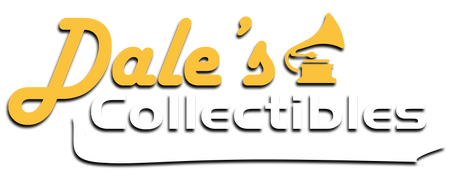This is the fifth studio album by the Doobie Brothers. It was released in 1975 on Warner Brothers Records. This was the final album for the band before Tom Johnston was replaced by Michael McDonald as lead vocalist and primary songwriter. This album has been certified gold.
This album includes the following songs: Sweet Maxine, Neal's Fandango, Texas Lullaby, Music Man, Slat Key Soquel Rag, Take Me In Your Arms, I Cheat The Hangman, Rainy Day Crossroad Blues, I Been Workin' On You and Double Dealin' Four Flusher.
This album is in very good condition and even the cover shows very little shelf wear.
For the band from San Jose it started a little bit like this: Drummer John Hartman arrived in California determined to meet Skip Spence of Moby Grape and join an aborted Grape reunion. Spence introduced Hartman to singer, guitarist and swonwriter Tom Johnston and the two began to form the core of what would soon become the Doobie Brothers. Johnston and Hartman called their new little group Pud. With this start they began trying different musicians. Most of the time they were a power trio with the addition of bassist Greg Murphy.
In 1970, they teamed up with singer, guitarist, and songwriter Patrick Simmons and bassman Dave Shogren. Keep in mind Simmons belonged to several area groups amonth them Scratch, an acoustic trio with future Doobies bassist T Tiran Porter.
While still playing locally around San Jose, the group adopted the name "Doobie Brothers". The word has it that Keith "Dyno" Rosen, who lived with or next-door[to the band, came up with the name after the band was struggling with a name. According to Tom Johnston, Rosen said, "Why don't you call yourself the Doobie Brothers because you're always smoking" pot? Everyone in the band agreed that "Doobie Brothers" was a really a dumb if not stupid name. Simmons has said the band intended to use the name only for a few early performances until they came up with something better, but they never did.
The Doobie Brothers improved their playing by performing live all over Northern California in 1970. They attracted a particularly strong following among local chapters of the Hells Angels and got a recurring gig at one of the bikers' favorite venues, the Chateau Liberté in the Santa Cruz Mountains, playing there through the summer of 1975. Apparently a set of demos, about eight were briefly and illegally released on Pickwick Records in 1980 under the title Introducing the Doobie Brothers, and have since been bootlegged on CD under that title and On Our Way Up, bothe with expanded song selections.
The Doobie Brothers have been active for five decades. The bands history can be roughly divided into three eras. From 1970 to 1975 it featured lead vocalist Tom Johnston and a mainstream rock and roll sound with elements of folk, country and R&B. Johnsston quit the group in 1975 and was replaced by Michael McDonald, whos interest in soul music changed the bands sound until it broke up in 1982. The Doobie Brothers reformed in 1987 with Johnston and are still active.

